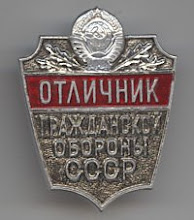The Wall Street Journal has published a new letter by George Schultz, Bill Perry, Henry Kissinger, and Sam Nunn on the question of eliminating the world's nuclear arsenals.
I agree with Pavel Podvig that the concrete steps listed in the letter should be taken as soon as possible. But I must admit that I am skeptical that they will bring us much closer to a world free of nuclear weapons. They are good, practicable measures that will make the world a safer place; but the reality of the situation is that there are vital strategic and political reasons why the Russian government will not be interested in disposing of nuclear weapons completely.
On the first point, nuclear weapons are the backbone of Russia's strategic offensive capability. The skeptic will scoff that this is meaningless, as "everyone knows you can't use nukes." This objection, however powerful it may seem in the light of 63 years of experience, is in fact a mere cultural construct. There is no physical reason why the Russians cannot lay waste to the United States, and while they would receive a response-in-kind, this does not mean the threat is meaningless or nonexistent. There are credible circumstances under which the Russians might feel that such threats were necessary in order to restrain the United States, and while I hope that no such circumstances are in the offing they must be the focus of Russian war planning.
Politically, nuclear weapons play an important role within Russia proper. Russia's nuclear arsenal is the foundation of Russia's great-power status, in which the Russian people take intense pride. Despite the economic windfall afforded by high energy prices, Russia's claim to a prominent place in world affairs is largely due to its status a nuclear superpower, not to any great economic or military capability. And the prospects for Russia becoming world-class in either economic influence or conventional forces are dim. The current economic boom is based on exports of oil and natural gas, and it is predicted that these reserves of these resources will decline after a few decades. Russia's demographic problems pose probably insurmountable challenges to future governments hoping to field world-class military forces. In a world without nuclear weapons, Russia's influence and power would almost certainly be greatly diminished.
As a student of Russian history, I have difficulty imagining that the Russians will be content to sit back and allow themselves to fade into obscurity. Indeed, it seems that the Russian government is working to avoid this possible outcome. And I believe that the Russians' project to modernize their nuclear arsenal is central to this goal. The mobile Topol-M launcher, the Project 955 submarine, and the Tu-160 bomber are insurance against a future in which Russia is irrelevant and eclipsed by powers such as China and India. Why would the Russian government abandon these investments to their great detriment and the de facto enthronement of American strategic hegemony? Indeed, to expect anything different from the Russians would be foolish.
This does not mean that the Russian government is opposed to disarmament. Quite the opposite, in fact- Putin has expressed an eagerness to negotiate further arms reductions on multiple occasions, only to have his proposals rebuffed by the United States. But I suspect that the Russians see disarmament talks as an opportunity to adjust the balance of power in their own favor, rather than as a step to a nuclear weapons-free world. They have hinted strongly that they would like to include the issue of American conventional forces in future talks- a likely deal-breaker. But I am quite confident that they would gladly sign a treaty that called for nuclear arsenals strictly limited to 1,000 strategic warheads apiece, and possibly fewer. This goal should be pursued. However, it is not really a step to a nuclear weapons-free world. As far as the Russians are concerned, it's a step towards a world in which American military might is more constrained- a goal which they are likely to view as incompatible with the abolition of nuclear arsenals.
Lest this be dismissed as an expression of imperialistic expansionism on the Russians' part, can it really be believed that the American government would behave differently under similar circumstances? Indeed, is it really believable that the US military would give up its nuclear weapons, especially given that the Russians cannot be expected to relinquish theirs?
I must conclude, sadly, that nuclear weapons are here to stay. They are not going away because they're too useful. They really do confer strategic influence and power on their owners. And while the world would be better off without nuclear weapons, the Russian state would not be. So however noble the goal of eliminating nuclear arsenals appears, I cannot regard it as anything more than a pipe dream. Still, it is vital that we work to keep the "bad old days" from coming back. And the proposals provided in the letter are an excellent place to start.
Tuesday, January 15, 2008
Subscribe to:
Post Comments (Atom)

1 comment:
A good case can be made that the existence of nuclear weapons prevented the cold war from becoming a hot war. Thus nuclear weapons, by their very existence serve to prevent war. Ir is easy for rogue states to acquire nuclear weapons. All they have to do is build a Handford type pile reactor - American 1943 technology - and fuel it with natural uranium. A processing plant will give you Pu238, and that is basically all you need. Ask the North Koreans. I understand that South Africa is considering reassembling their six nuclear bombs.
What is to stop a rogue state from using its nuclear weapons? Another nuclear armed state that can rain death and destruction. Assured destruction is a sobering thought as John Kennedy and Nikita Khrushchev knew.
Post a Comment